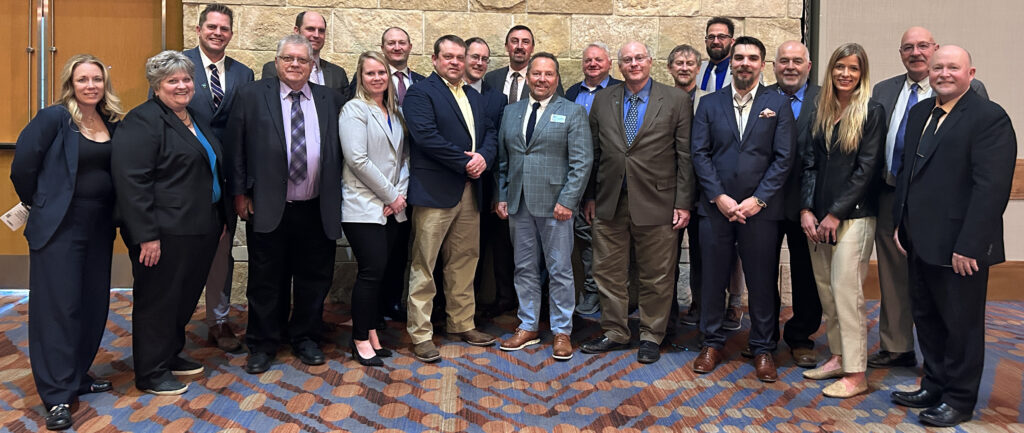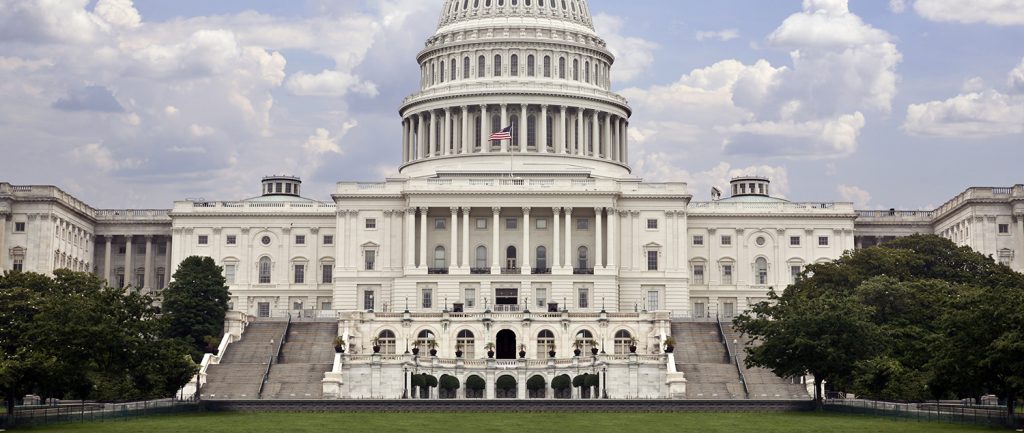Minnesota farmer leaders and Minnesota Soybean Growers Association (MSGA) directors arrived in San Antonio throughout the final week of February to visit with fellow producers from across the U.S., network and finalize 2020 resolutions during the 24th annual Commodity Classic. Throughout the week, the American Soybean Association (ASA) celebrated its 100th anniversary.
“It’s great to be here to see old friends from Minnesota and across the country, and make new ones, too,” said ASA President and Minnesota farmer Bill Gordon.”
On Saturday, Gordon lunched with his fellow farmers, walked them through the delegate process and thanked them for their camaraderie and advocacy efforts on behalf of Minnesota farmers.
“As you guys know, the grassroot part of this is key, ” he said, “and Minnesota’s always been at the forefront (of the resolution process).”
Minnesota was represented by 20 farmers at the delegate session, joining more than 100 total voting delegate farmers from across the nation.
Debated topics during the resolution process included,
- Expanding trade with India and ratifying trade agreements
- Wetland easement mapping
- Crop insurance
- USDA informational reporting
Gordon predicted a straightforward resolution process and was proven correct.
“The process went very smoothly and we feel we have our priorities set for 2020,” says MSGA President Jamie Beyer, who will be attending Hill Visits in Washington, D.C. in March.
Gordon joked at the end of the session that 2020 would go down as the record for “fastest resolution process in history,” though Gordon complimented the hard work done throughout the week in order to be best prepared for Saturday’s voting session.
“That was our intention,” he said. “Not to make it the fastest resolution session but to make it smooth, streamlined and yet allow for debate from the floor and interaction like Illinois had. It was perfect. That’s exactly what we wanted to see. We didn’t want to affect the grassroots part of this process.”
Joe Smentek, MSGA executive director, says the advocacy organization runs on all cylinders because of support from its membership base.
“We are grateful to all the farmer leaders who participated in the long resolution process, which began in October,” he said. “We saw today just why it pays to join MSGA: When we stand together, our voice is heard.”
ASA update
At the close of the Saturday’s delegate session, ASA CEO Ryan Findlay addressed the delegation about some of the changes that occurred in 2019 and where the organization is going in 2020.
Findlay highlighted the growth of the in-house D.C. staff, noted ASA has a new home in St. Louis, and discussed the vision for the future.
“As we pivot forward into 2020, the biggest thing we will have going on is the strategic plan,” he said. “Our goal will be to work on the strategic plan throughout this year. ”
Findlay said directors and staff will work on the plan with the goal of implementing it Oct. 1, 2021. He assured the delegation the strategic plan will still concentrate on the core of what ASA does well.
“A lot of it is going to be continuing to battle on the issues side, on the issues front on your behalf.”
Caucusing
Wednesday afternoon, MSGA’s delegation met with North Dakota, South Dakota, Wisconsin and New York delegates to finalize resolutions during a caucus meeting.
During the caucus session, Farm Service Agency (FSA) Administrator Richard Fordyce spoke with farmers about the implementation of the 2018 Farm Bill and the ARC/PLC program. Farmers must apply for ARC/PLC by March 15. Fordyce, a former United Soybean Board director, asked farmers to thank their local FSA officials.
“Nothing happens without our county offices,” he said.
He was followed by an appearance from National Biodiesel Board Donnell Rehagen, who extended his gratitude to farmers.
“Our advocates are the very reason why we’re here,” Rehagen said. “We’ve grown a lot over the years, but we owe our very existence to soybean farmers, and we want the soybean industry to be plugged into what we’re doing.
Rehagen outlined NBB’s plan to double the nation’s production of biodiesel during this decade, from the current 3 billion gallons per-year rate to 6 billion by 2030. He believes the industry can achieve this goal by fulfilling a growing demand for biodiesel in California as well as from the heating and oil industry.
“(6 billion) certainly isn’t a stretch on the demand side,” Rehagan said.
Secretary Sonny returns to Commodity Classic
The trade show floor, packed with vendors and commodity groups from across the country, opened late Thursday morning. By Saturday, Gordon reported Commodity Classic set record attendance with more than 9,000 registrants, including more than 4,000 farmers.
On Friday, USDA Secretary Sonny Perdue returned to deliver the Commodity Classic keynote address. Before his speech, President Trump sent a recorded video from the White House, and hinted he may appear at the 2021.
“Our farmers are brilliant,” he said. “It’s incredible what they do. … Few people could do what they do.”
Perdue outlined USDA’s vision for 2020, which includes improving rural broadband access, and relayed conversations he’s had with the president about why farmers prefer “trade, not aid.”
“He has such an affinity for farmers. He’s got your back,” said Perdue, adding, “it’s always better to have a good crop at a fair price. “
The secretary also reaffirmed the administration’s commitment to the Renewable Fuels Standard (RFS), and said he believes fewer small refinery waivers will be issued by the U.S. EPA.
“But in D.C., it’s never over until it’s over,” he said.
On Friday night, MSR&PC honored Gordon, the sixth Minnesota farmer to serve as ASA president, during a reception alongside USB Chair Jim Carroll.
“It was a wonderful event and we got such great feedback from folks who came to celebrate with us,” says Gordon, who was accompanied by his wife, Dawn, their children and Bill’s parents. “I was able to see a lot of dear friends from back home. This Classic was everything I hoped it would be, and more. Hats off to everyone from ASA and Minnesota Soybean.”





